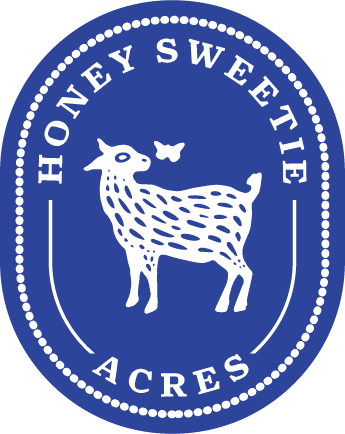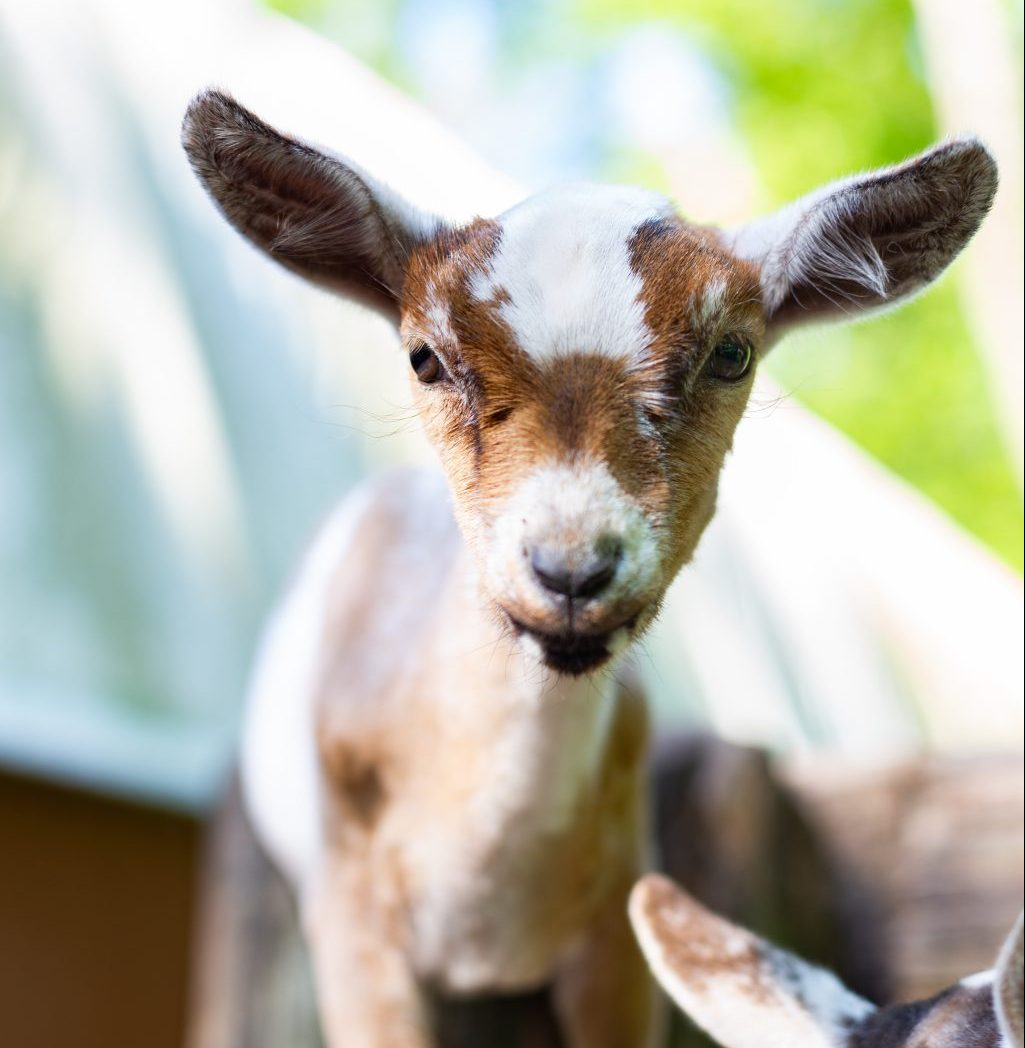
Nigerian Dwarf Dairy Goats
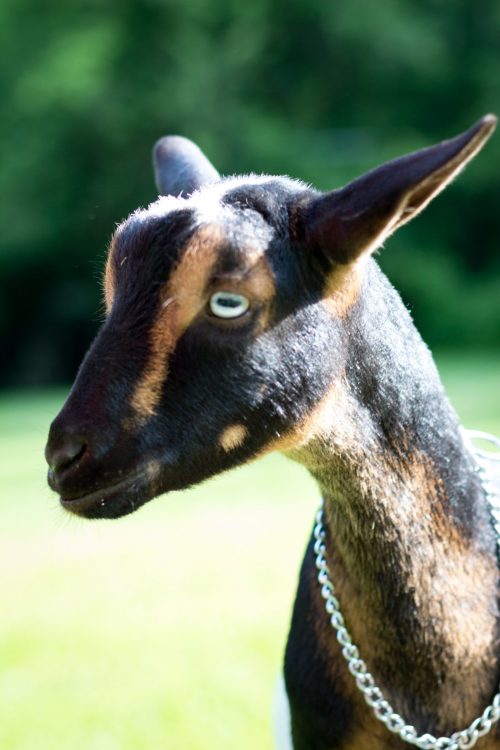
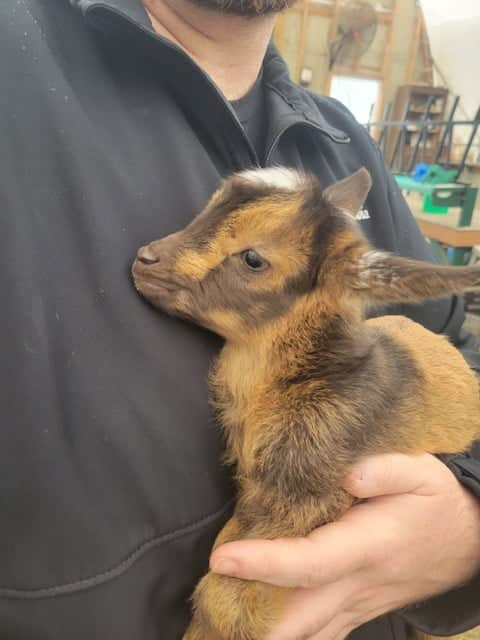
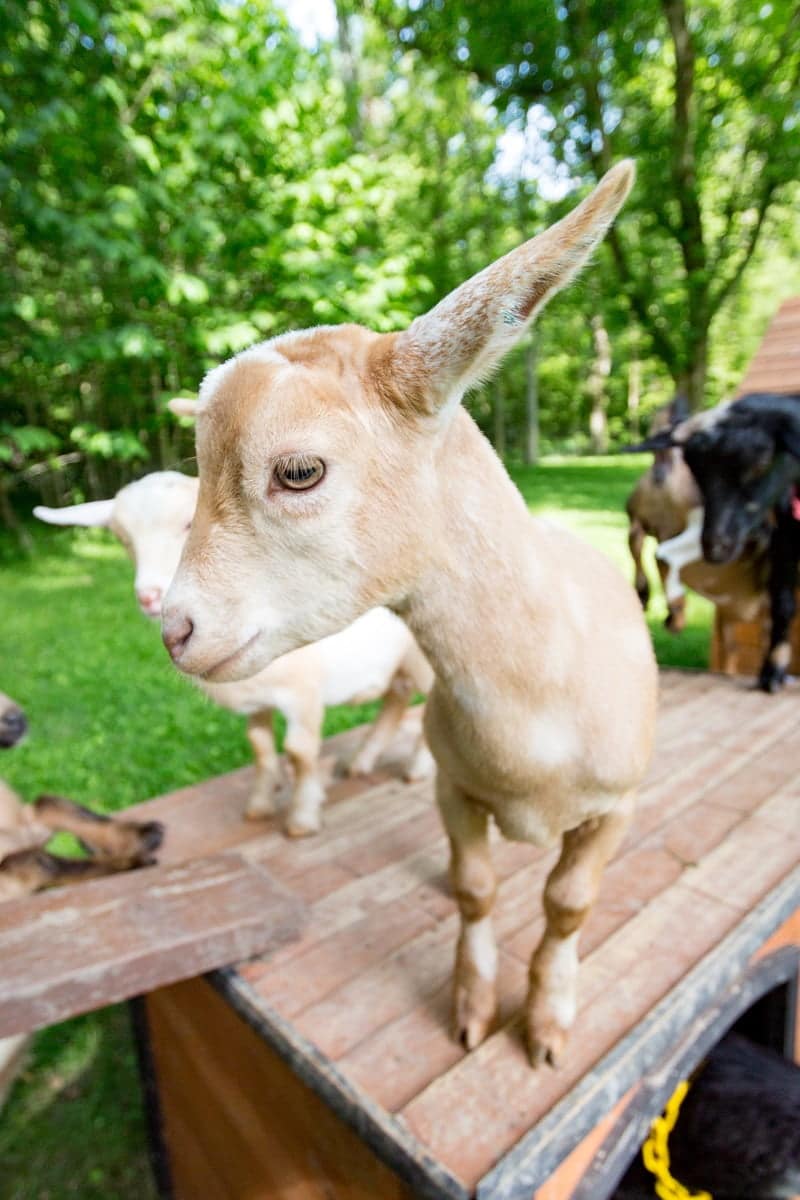
Several theories exist on how these little goats came to America. One belief is that they were brought on ships as early as 1918 to serve as food for the large cats headed to American zoos. Those that survived the voyage became part of the zoo family. As their populations began to grow, these goats were indiscriminately referred to as Pygmies. Over time, breeders came to recognize two distinct types. The Pygmy breed was promoted as a short, heavier-bodied animal with round bones. The Nigerian Dwarf was considered to be a more refined dairy type with angular body proportions and flat bones. As breeders began to communicate and compare notes, they began to intentionally refine the differences through selective breeding.
All breeds began their development in a specific part of the world. Breeders have carefully molded this goat breed into a superior milk-producing dairy animal, which is also small and perfect for the backyard, hobby farm or 4-H project.
As compared to other dairy goat breeds, Nigerian Dwarfs require less space and feed than the “normal” full-size dairy goat. They also produce milk with substantially higher butterfat content than other breeds, making their milk the ideal choice for soap and cheese-making. Nigerians can average between 6% to 10% butterfat in their milk. Nubians are also known to produce a higher butterfat milk, which averages nearly 3% to 5%.
Click here to learn more about the colors and coat patterns of Nigerian Dwarf Goats.
Goat Care and Management
We take great pride in the care of our herd. My husband and I are not new to animal husbandry. Steve cared for goats, rabbits and chickens throughout his youth. For my part, my family raised and showed American Saddlebred horses in the 70’s & 80’s. Later, I became a registered Arabian judge in the 90’s and taught equitation for many years. By wanting to work with smaller and productive animals, the caprine world was the natural extension.
A healthy animal is a well-managed animal. A successful breeding program means being familiar with the small nuances of your herd, regardless of the species. Detailed observation gained by spending quality time with goats daily, watching their behaviors, and noting individual personality quirks or traits, will provide a wealth of information. This practice allows us to catch abnormalities or any signs of illness quickly. This isn’t to say ours is the only way; it simply works best for us. Besides that, our goats are “family”, so we choose to provide the best care we possibly can.
Keep in mind, all breeders have their own opinions of what constitutes “proper goat care.” Different practices are employed in different climatic regions and are also based on the availability of various local feeds.
Feeding
On the property we have chosen, our goats have access to natural forage, particularly in our surrounding woods. We feel it is important that we provide as natural a diet as possible, supplemented only when necessary for optimum milk production and bearing healthy kids.
When calorie supplementation is needed, we still maintain a base high-forage diet, beginning with a quality alfalfa hay or a nutritionally comparable option. We are blessed to have a knowledgeable hay supplier who understands the nutritional requirements of dairy animals. Our goats are fed a premium, formulated goat chow with high protein, supplemented with beet pulp, black sunflower seeds and kelp meal to boost caloric intake. We use Sweetlix branded mineral supplement and baking soda are offered free choice at all times. Our bucks are treated with ammonium chloride every quarter to aid in the prevention of renal calculi. Clean, fresh water is available at all times, with additional electrolytes added in the hot summer weather.
Medical Care
While we attempt to raise our goats as naturally and holistically as possible, modern medicine is sometimes needed. We rely on Dr. Jason Patchell of Rolling Hills Veterinary Clinic in Bethel, Ohio. In the event of additional care, we have the option of Ohio State University Veterinary School in Columbus, Ohio.
Our goats are tested twice a year for CAE and our herd is currently CAE free. We also test for Johnnes and CL as recommended by our veterinarian. Our herd has always tested negative for those as well. Our worming program is based on periodic fecal testing. A volunteer veterinary technician on our staff will check manure samples and perform egg counts every few months.
Should any necessary medical treatments adversely affect milk quality, that milk will not be used in our soap production process. To learn more about Rolling Hills Veterinary Clinic click here.
Sanitation
Grandma always said, “Cleanliness is next to Godliness.” While goats are fairly hardy animals, we find it easier, more economical, and better for our own herd to be proactive on healthcare, rather than simply reacting when and if an illness strikes.
Urine and manure are harbingers of disease, parasites, bacteria and illness when left over time. As such, the base of our stalls is a mixture of crushed and pebbled Kentucky limestone. This alkaline environment helps to filter and neutralize goat urine. Our stalls are lined with 3/4-inch rubber matting which makes them easier to clean, less stressful on their legs and warmer in the wintertime. We also find they cut down on dampness and thus any associated respiratory irritation.
We scrub and disinfect our feed and water buckets weekly….. more often if needed due to debris. We have proven the benefit of doing this in our worming program. The fecal egg counts performed by our veterinarian are coming back any where from <200 to zero egg population. In addition to regular worming, we strongly believe our sanitation program is part of the reason for such low numbers. After being scrubbed with a natural soap, we rinse our buckets raw full strength apple cider vinegar
